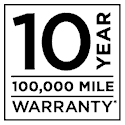Car Flipping: What Do People Say About This Business? [Survey]
Car Flipping 101: America is a nation of ‘car flippers’, reveals survey.
Car Flipping 101: You’ve probably heard of house flipping – a type of real estate in which an investor purchases a property with the sole intention of reselling it for a profit. Now, picture the same concept but instead of houses, cars are being flipped like hot pancakes and bringing in big bucks for investors! Now, according to a survey by GuntherKia.com, a whole new breed of ‘flipper’ has emerged recently, with people buying cars – and specifically, electric vehicles – with the purpose of selling them on to make a profit.
Typically, cars lose over one-fifth of their value during their first year of road use alone, however, since the beginning of the pandemic, used car prices have actually increased by more than half (53%, to be exact). Some electric vehicle flippers are finding that buyers are willing to pay thousands of dollars more than the retail price to acquire these cars. One car flipper had a practically brand new 2022 Hummer EV1 for sale for $220,000 on Facebook, when it had been retailing for less than half ($105,000). And assisting this market is an unusual combination of issues affecting both electric vehicle manufacturers, as well as potential vehicle buyers, including a shortage of lithium batteries and supply chain problems, among production goals not being met and an overall shortage of new cars being produced. For car shoppers, these issues include sky-high fuel prices, as well as long waiting lists for electric vehicles, leaving a niche market open to those interested in investing in the business of car flipping.
GuntherKia.com conducted a survey of 3,012 would be investors to find out how many have either engaged in, or plan on, investing in the car flipping business. This found that 16% of respondents said car flipping is something they would be interested in getting into – that is, if they haven’t already. Moreover, the average person said they’d be happy with flipping a car and expect a profit of 41% of its original value.
Broken down across states, this figure was highest in Wyoming and Vermont, where it seems people are automotive enthusiasts – a third (33%) said they have either dabbled in or would be interested in getting into the car flipping business. Comparatively, this figure was only 3% in Massachusetts.
View the following infographic showing peoples’ interest in getting into the car flipping business across each state:


In a sign of how desperate buyers are to land their perfect vehicle, the survey also asked people which model they would be most likely to purchase at a value above the recommended retail price if they were looking to buy a car and there was limited stock. Overall, 21% said they would most likely purchase an SUV at a higher value than the recommended retail price if they were looking to buy. Eighteen percent said they’d buy a sedan; 16% would purchase a sports car; another 16% would buy a pickup truck at this elevated value; 11% said a station wagon; 7% said they’d buy a hatchback; 6% said coupe and 5% said minivan.
When it comes to the values involved in the car flipping business, it can be a contentious topic. Although it appears many would be in support of joining the car flipping business, nearly half (44%) think car manufacturers should ban this market. However, 68% of people said personally, they wouldn’t have any moral hang-ups about buying a car with the sole purpose of reselling it at a higher cost.
‘The car flipping business is definitely a contentious topic – especially with used car prices having begun to soar during the pandemic due to a lack of brand-new vehicles available on the market,’ says says Joseph Gunther IV of GuntherKia.com. ‘There are plenty risks involved in purchasing a car that has been ‘flipped’. These kinds of deals are usually done privately and without the authoritative qualities of a dealership, therefore, it’s important to do extensive research prior to investing in any kind of used car – especially one that is being sold for a significantly higher cost than retail value.’


 Warranties include 10-year/100,000-mile powertrain and 5-year/60,000-mile basic. All warranties and roadside assistance are limited. See retailer for warranty details.
Warranties include 10-year/100,000-mile powertrain and 5-year/60,000-mile basic. All warranties and roadside assistance are limited. See retailer for warranty details.